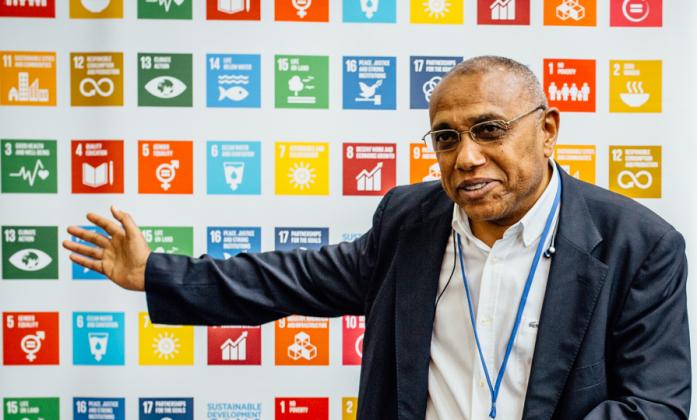
Persons with disabilities comprise an estimated 15 per cent of the world’s population, or one billion people, of whom 80 per cent live in developing countries and are overrepresented among those living in absolute poverty. Persons with disabilities often encounter discrimination and exclusion on a daily basis. This means, in particular, pervasive exclusion from development programmes and funds, as well as all areas of economic, political, social, civil and cultural life, including employment, education and healthcare. Persons with disabilities were not referenced in the Millennium Development Goals (MDGs) and as a result were excluded from many important development initiatives and funding streams around the world.
The 2030 Agenda for Sustainable Development includes persons with disabilities and has thus opened doors for their participation and recognition as active contributing members of society: who must not face any discrimination or be left out or behind. Persons with disabilities should be recognized as equal partners, and be consulted by Governments, the UN system, civil society and other stakeholders. Out of the 169 targets across the 17 Goals, seven targets have an explicit reference to persons with disabilities.
Further, all Goals and targets are applicable to persons with disabilities by simple virtue of universality, which applies to all persons, and the overarching principle of “leave no one behind.” Persons with disabilities strongly believe that only by utilizing the UN Convention on the Rights of Persons with Disabilities (CRPD) as a guiding framework in implementing the SDGs, will it be ensured that exclusion and inequality are not created or perpetuated. This includes institutional, attitudinal, physical and legal barriers, and barriers to information and communication, among other such barriers.